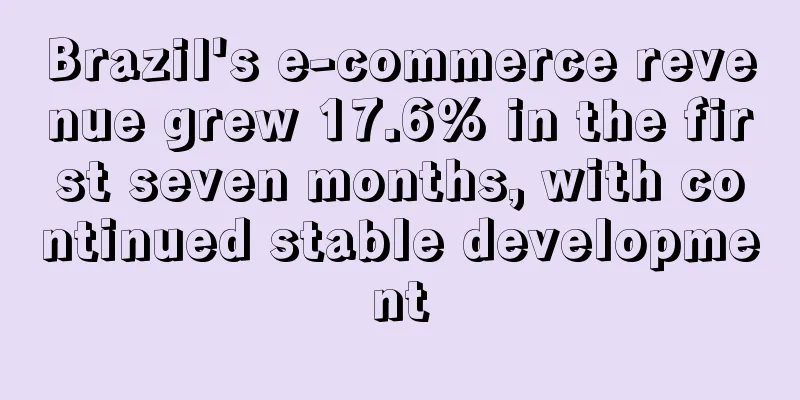Anti-counterfeiting warning! Wish strikes hard against misleading products

|
In order to create a healthy market environment for Wish's merchants and users around the world and to address fraudulent behavior on the platform, Wish has added the following misleading product violation examples and is subject to Wish's Misleading Products Policy .
The platform defines this policy as follows: if a seller intentionally and publicly claims that the product he sells is a genuine brand product, but the product actually sold is not genuine, then the product may be considered a misleading product.
There are many forms of this counterfeiting of branded products, including but not limited to: using brand names from Wish's "Brand Catalog" to mark or attempt to mark counterfeit or non-branded authentic products.
This situation is quite common, with many sellers selling OEM or re-labeled imitation products and then claiming them as genuine products. Or they sell genuine and fake products together, which damages the rights of consumers.
The second situation is that the seller’s products were removed from the shelves by Wish’s “brand protection” team and management team for providing false brand information . The difference between this and the first situation is that the seller directly used genuine brand information to sell counterfeit goods, but the products were detected and removed from the shelves by the platform.
Another situation is that sellers use terms such as "Certified," "refurbished," or "Used" in product listings with the intention of selling non-genuine or counterfeit products .
The third situation happens most often, because many buyers use these words to deceive consumers. It is even more rampant in the 3C product category. According to sellers’ complaints, some sellers have achieved sales of more than 100,000 by refurbishing Apple, Beats headphones, tablets, etc.
However, these products that claim to be refurbished or second-hand are actually sold as fakes, forcing consumers to buy inferior products at high prices. This not only disrupts the market order, but also makes consumers lose trust in the platform.
The Wish platform has introduced policies and penalties for this: According to Merchant Policy 2.10, the maximum compensation for the "impersonating brand products" example newly added in the "Misleading Products Policy" is US$200, and the seller's account will also be warned, frozen, etc. depending on the severity of the counterfeit sales .
The platform stated that it has formulated strict policies against the listing or sale of products that infringe on the intellectual property rights of others, including a strict prohibition on the sale of imitations, fakes and knockoffs . This is in line with Wish's core mission and policies, and its purpose of providing quality services to users.
It is illegal to sell imitation, counterfeit, or knockoff products of any product on Wish . Sellers are responsible for ensuring that their products and listings do not infringe on the legal rights of any third party.
Sellers have different reactions to the policy update. Some expressed support: "Wish should have banned it long ago. There are a lot of counterfeit products on the platform. If it is not banned, there will be more and more vicious competition."
Some sellers also said: "Wish is too slow to respond. The big guys who do renovations are making a lot of money."
Another seller joked: "If Wish hadn't issued this policy, I, the ignorant one, wouldn't have known that Wish could do this."
However, Wish can propose policies to prevent such phenomena from happening again and maintain the sales environment for sellers, which is better than doing nothing. Sellers also need to sell genuine products, because selling counterfeit and refurbished products is illegal, and there is no need to touch the legal red line for temporary benefits. Wish Fighting against counterfeiting Misleading products |
>>: Attention! The Vietnamese government will rate online shopping platforms
Recommend
What is Zappos? Zappos Review, Features
Zappos is a US B2C website focusing on shoes. It ...
What is Lume Deodorant? Lume Deodorant Review, Features
Lume Deodorant is a natural deodorant brand dedica...
What are the sales during the first half of the year in the Middle East? This calendar is recommended for collection
Valentine's Day: Flowers, Fashion Valentine&#...
What is streetvalue? streetvalue Review, Features
streetvalue is the sales and distribution partner ...
What is Sunshine Cross-border Platform? Review, Features
Sunshine Cross-border Platform is a domestic cust...
Suddenly collapsed! Amazon's well-known seller filed for bankruptcy, owing nearly $600 million
Since last year, news of various big sellers goin...
Revenue and net profit plummeted! Many cross-border sellers were hit
Recently, major cross-border sellers have success...
What is Shoptago? Shoptago Review, Features
Shoptago is a website building platform under Lian...
India's Maharashtra state shuts most manufacturing, restricts e-commerce
India 's richest state of Maharashtra will im...
More Chinese goods were seized!
Recently, there have been many cases of freight f...
Industry recovery? Walmart's e-commerce revenue surged 27% in the first quarter
When the epidemic was at its worst in the past tw...
US consumer goods prices will rise across the board!
The outbreak of the Omicron virus has brought new...
What is Persian Logistics? Persian Logistics Review, Features
Perstong Logistics (Shenzhen Perstong Logistics Co...
During the epidemic, the United States spent $1.7 trillion online, and three major categories accounted for more than 40%
During the epidemic, offline consumption was rest...
Apple becomes the largest player in Japan's mobile phone market! Demand for peripheral accessories is rising
According to a report by market research firm IDC...









